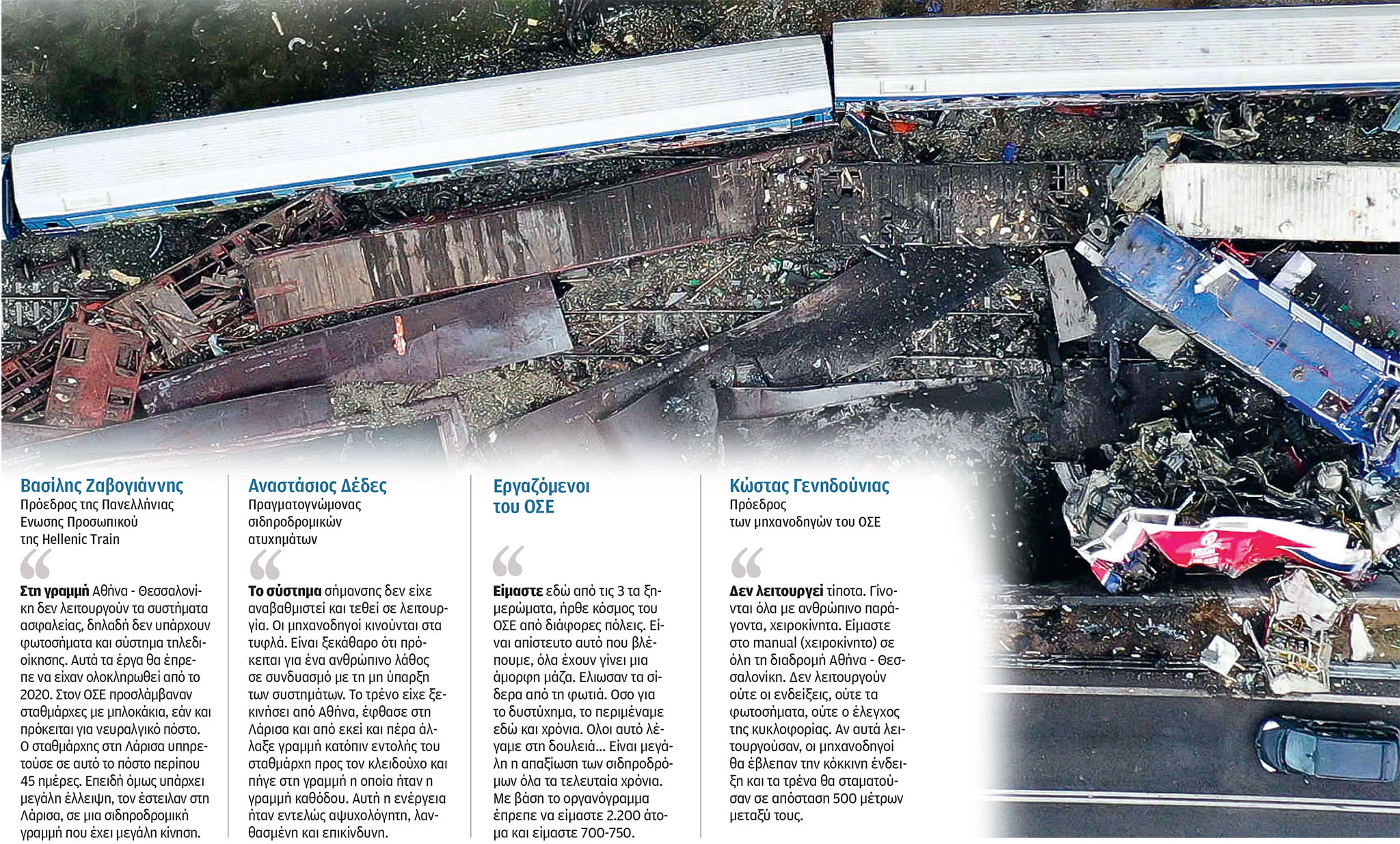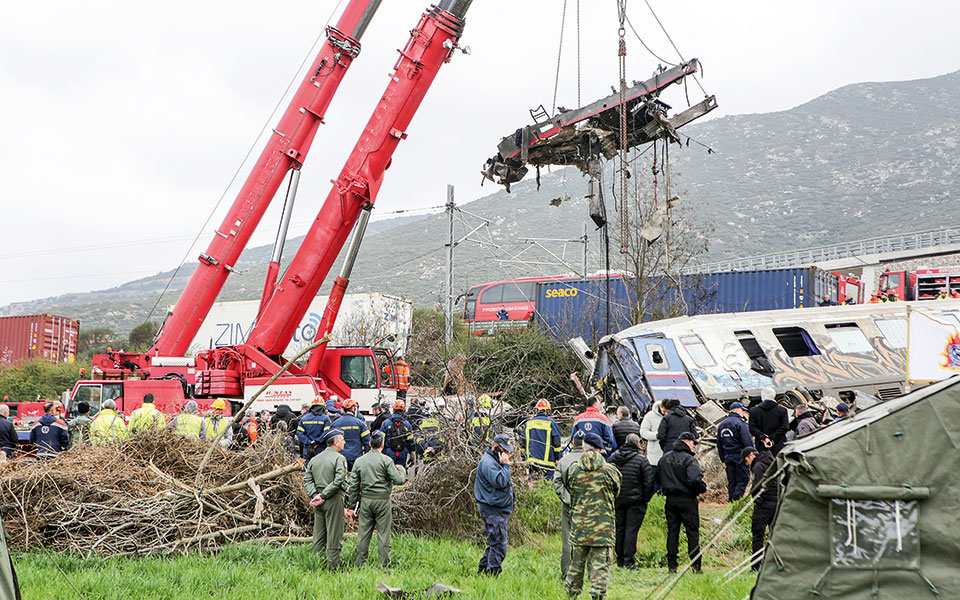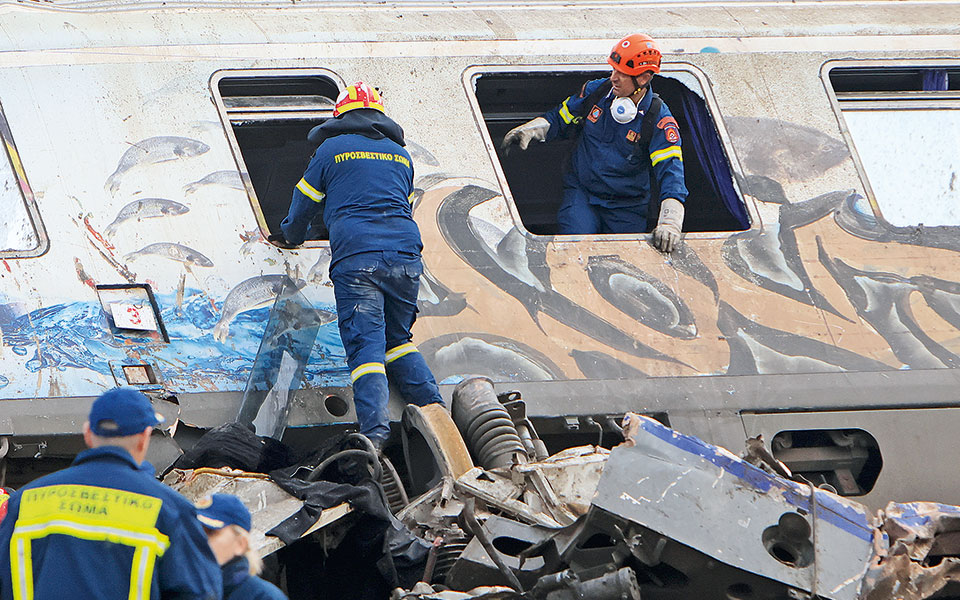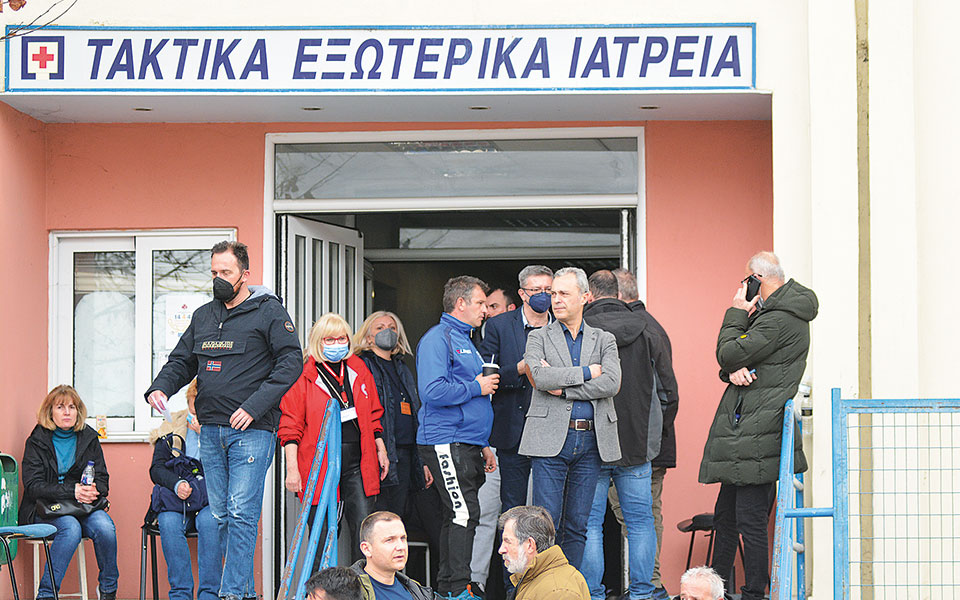
Nobody has ever worked in Greece automatic national railway security system. electronic alarm – compatible with other European countries – installed but not operational due to damage and vandalism, and a restoration and modernization project started in 2014 is still pending with seven extensions.
Such systems would have prevented a tragic accident, as they ensure that the trains communicate with each other and with the tracks, as well as with the control center.
Based on the 2016 decision, all countries were required to draw up “national implementation plans” for the new systems. A report released in 2018 by the Ministry of Infrastructure reveals the quagmire the case has fallen into. As already mentioned, a two-way signaling system with remote control has already been installed on the country’s main railway network (Kiato – Athens – Thessaloniki – Promakhona). “The system in question, due to the significant damage and sabotage inflicted after its initial commissioning, today presents serious problems,” it says.
“Restoration – modernization of the system on the SKA (Aharnon Communication Center) – Thessaloniki – Promahonas section began in 2014 and is scheduled to be completed in early 2019,” the report says. “The only thing that worked was the GMS-R voice radio coverage system, with the exception of the Tiforea-Domokos sections (under construction), Kiato-Patras and Thessaloniki-Idomeni (707 km, 103 base stations and 70 hub stations). )”.
Ministry of Infrastructure and Transport submitted to the Community authorities a timetable for the phased modernization of railway lines. This included the completion of the Three Bridges – SKA – Thessaloniki – Promachonas section in 2020, and the rest – from 2025 to 2030.

The basic contract for the project “Reconstruction of the signaling system – remote control and replacement of 70 track changes on the identified sections of the Athens – Thessaloniki axis” was signed in September 2014 between ERGOSE and the TOMI – Alstom consortium. The latter is one of eight European companies that have developed, under EU leadership, the industrial part of the European railway interoperability and safety system.
A new completion deadline has been set for March of this year and the budget has increased by 20 million euros.
Additional contract
The initial budget of the contract was 41 million euros and the duration of the contract was two years. However, since 2016, it has started to receive renewals: it received seven in total, the last on 7 December 2022, with a new completion date of March 2023, and the project’s budget has now risen to 51.2 million euros.
At the same time, along with the latest extension, ERGOSE also signed an additional contract worth 13.3 million euros with the same deadline. It should be noted that in January 2021, TOMI (a subsidiary of Elactor) withdrew from the JV, while Alstom took over its part of the project.

Serious controversy
What did the project give? According to sources in the Ministry of Infrastructure, the project was “frozen” in 2017-2019 due to serious disagreements between ERGOSE and the contractor. For example, the “communications” system installed on the tracks by another contractor was incompatible with Alstom’s systems. Finally, through an additional contract, the differences were resolved, the project took off, and in December 2021, Alstom delivered an alarm system for the Thessaloniki-Promakhona section and a remote control system for the Plata-Promakhona section (about 190 km). ).
Also in May 2022, the remote control of the Tiforei-Domokos section was transferred, which has not actually been put into operation yet. In fact, in October, a serious accident almost occurred at Tiforea station, when the train driver, entering the station, discovered that there was a train on the same line and braked hard, causing the train to derail.
The rest of the project is still “missing”. According to the Ministry of Infrastructure, it is about 70% and will be completed in September this year. OUR “K” contacted Alstom with a request to justify an increase of more than three times the contractual terms of the project, but the company refused to position itself.

Appeal to the European Court
The European Commission announced the appeal of Greece to the European Court of Justice due to non-compliance with the rules of rail transportation in mid-February. In accordance with the Directive establishing the Single European Railway Area (2012/34/EU), Member States had to ensure that the agreement between the competent authority (in Greece, the Railway Regulatory Authority) and the National Infrastructure Manager (NSO) was signed by June 2015.

The agreement should specify the amount of funds allocated for infrastructure services and user-centric performance targets. “Despite the exchange of letters between the Commission and Greece, the national authorities have not yet signed and published a contractual agreement with the Greek railway infrastructure management organization OSE. Considering that Greece continues to violate the directive, the Commission has decided to take the matter to court,” the commission said in a statement.

Source: Kathimerini
Ashley Bailey is a talented author and journalist known for her writing on trending topics. Currently working at 247 news reel, she brings readers fresh perspectives on current issues. With her well-researched and thought-provoking articles, she captures the zeitgeist and stays ahead of the latest trends. Ashley’s writing is a must-read for anyone interested in staying up-to-date with the latest developments.